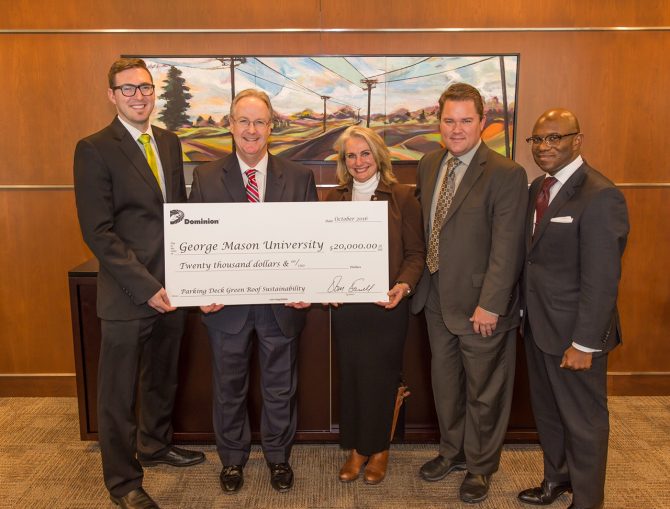May 2018
CESP fellow, Dr. Joel Hicks, and CESP affiliate, Dr. Jessica Terman, received a “Small Grant in Behavioral Economics” from the Russell Sage Foundation to conduct a field experiment examining how loss aversion can be applied to reduce energy consumption. Working with CESP and Dickinson College in Carlisle, PA, the study will ran through the 2018-2019 academic year. Here is the final report with findings.
[gview file=”https://cesp.gmu.edu/wp-content/uploads/2020/08/Final_Narrative_Report_Loss-Averion_RSF.pdf”]
Datasets and scripts are available upon request by contacting CESP at this website.
———————————————————————————————————
December 2016
CESP Co-Director Paul Hauser leads GMU team in receiving “Green Roof on Parking Deck: Designed for Sustainability” 2016 project award from Dominion’s Higher Education Partnership grant program

———————————————————————————————————
August 2016
CESP is proud to be a recipient of a 2016 Multidisciplinary Grant from the Office of the Provost and Executive Vice President. We are confident that our proposal “Informing Commonwealth of Virginia Energy Policy through Electric Utility Modeling and Optimization“ will help improve the energy security of Virginia. We are partnering with several municipal and cooperative utility providers to develop both supply and demand side management tools to help deliver affordable and reliable energy services to Virginian households and businesses, while striving to help Virginia meet their energy efficiency and conservation goals. We value our relationship with APPA, VAEEC and NRECA as we move forward in finding tailored solutions for the Commonwealth’s many service areas.
Co-PI’s include Dr. Alexander Brodsky (VSE) and Dr. Jessica Terman (Schar School)
Ph.D. Students: Roberto Levy (VSE) and Joel Hicks (Schar School)
———————————————————————————————————
August 2016
GMU’s College of Science (COS) is providing a seed grant for a CESP project that addresses energy and water access conflicts by analyzing the parameters and potential applications of hydropower micro-turbine technologies in communities facing severe energy and water challenges. Dr. Jennifer Sklarew, CESP’s Senior Fellow for Energy Policy and Adjunct Professor in COS/ESP, is lead PI, and co-PIs include CESP Co-Director Dr. Paul Houser (COS/Geography and GeoInformation Science), as well as CESP affiliates Dr. Dann Sklarew (COS/ESP), Dr. Colin Reagle (VSE), and Dr. Viviana Maggioni (VSE).
The project examines the potential of urban hydroelectric micro-turbines to generate power while mitigating stormwater runoff. The COS grant will seed collaboration on two complementary assessments of micro-turbine deployment challenges. First, using existing pilot project data, a paper study will evaluate the geographical, ecological, technical and institutional challenges facing micro-turbine installation, operation, and maintenance, as well as applications for stormwater management and electricity generation. Second, deployment of water quantity and speed sensors on Mason’s Fairfax campus will generate predictive calculations of the water flow needed to generate electricity for small-scale applications such as cell phone charging kiosks. The paper study and sensors will evaluate building gutter systems, stormwater infrastructure drainage systems, and outflows from retention ponds to determine optimal locations for micro-turbine installation. This COS-funded analytical and technical groundwork on barriers, technology and location selection will inform the next phase, a pilot project deploying a micro-turbine on Mason’s Fairfax campus. Analysis of its challenges and successes will launch a much larger international initiative to deploy the technology in Ghana or India, followed by other developing nations.

